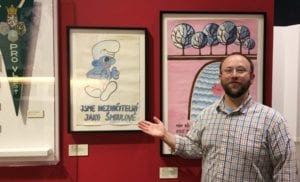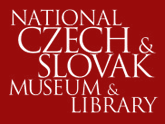“What I do as a Human Rights Education Specialist has a central mission: to integrate issues surrounding human rights, community and culture with the NCSML’s commitment to telling the story of Czech and Slovak life.” Nicholas Hartmann, PhD
 Nicholas Hartmann is the Human Rights Education Specialist at the National Czech & Slovak Museum & Library. Hartmann has a PhD in Folklore from Memorial University, Newfoundland, Canada, and was most recently folklorist-in-residence at the Southwest Folklife Alliance in Tucson. He was awarded the Archie Green Fellowship at the American Folklife Center at the Library of Congress, and the Folklife Initiatives Fellowship at the College of Social and Behavioral Sciences, University of Arizona, among others. His research interest is in public folklore and social justice with folklife education as a tool for community-based social justice initiatives. Below, Hartmann explains his new role at the NCSML.
Nicholas Hartmann is the Human Rights Education Specialist at the National Czech & Slovak Museum & Library. Hartmann has a PhD in Folklore from Memorial University, Newfoundland, Canada, and was most recently folklorist-in-residence at the Southwest Folklife Alliance in Tucson. He was awarded the Archie Green Fellowship at the American Folklife Center at the Library of Congress, and the Folklife Initiatives Fellowship at the College of Social and Behavioral Sciences, University of Arizona, among others. His research interest is in public folklore and social justice with folklife education as a tool for community-based social justice initiatives. Below, Hartmann explains his new role at the NCSML.
In the two months that I have been here at the National Czech & Slovak Museum & Library (NCSML), I have received a lot of curiosity about my status as a new staff member. People often ask me and other staff what I do as a Human Rights Education Specialist. On top of that, when they hear that I’m a folklorist, a lot of people wonder how it plays a role in human rights work.
I come into human rights from a different background than many others involved in the field. Whereas there are many people coming from a legal or political perspective, I come in as a specialist in cultural perspectives. As a freshman at Indiana University, I quickly realized that my courses in folklore, music and culture were more personally fulfilling than the pre-medical biology and chemistry coursework I had initially taken. In these folklore courses, we talked about ways in which human rights issues were projected within folk and traditional culture. I learned how Hmong refugees in the United States inscribed their stories of exile into their traditional weavings and how Vietnam War veterans created art as a method of coping with the trauma of war. It didn’t take long to see the immense power of the everyday. From working as a public folklorist, educator and archival assistant in Indiana, Kentucky, Newfoundland and- most recently- Arizona, I have realized that highlighting the power of everyday culture works to build a stronger, more empathetic society that celebrates cultural differences. Working as a public folklorist allowed me to work with a wide variety of audiences, ranging from children to senior citizens. In many ways, it was the best training for museum education and outreach work.
At the NCSML, I have spent a lot of time studying our collections in order to see how everyday experiences and objects can teach about human rights issues. Oral histories, such as those we have in the library, serve as a piece of collective memory and provide testimony about human injustice. However, even the unlikely objects make a difference. For example, our puppet display is a highlight of traditional Czech/Slovak culture, but it also serves as a discussion piece for freedom of expression, language and censorship. Our display of posters from the Velvet Revolution are everyday objects used as part of a greater social movement. None of them are as big as our Tatra- which is itself a discussion piece!- but they each bring much to the table.
This has been part of my discussion with our upcoming Summer Institute for Educators, a collaborative effort between the NCSML and the University of Iowa’s College of Education. Teachers from a wide variety of backgrounds are coming to the NCSML to better understand how to incorporate human rights in a global context into their curriculum. I will be working with educators to better demonstrate how museums such as the NCSML serve as an educational resource for teachers. This will be supplemented by a specialized tour for educators focusing on human rights and empathy education, as well as a keynote talk from Anne Duggar, the Immigrant and Refugee Coordinator for Cedar Rapids’ Catherine Mcauley Center.
While I have been working to facilitate this Summer Institute, I have also been doing much to foster future programming at the NCSML. This fall, we will be presenting a series encouraging audiences to “think globally and act locally,” comprised of three events. First, Šimon Pánek of the Czech humanitarian organization People in Need, will be coming to speak in Cedar Rapids about the work his organization is doing throughout the world. Second, we will be hosting a program called “Confronting Genocide and Cultural Differences” at Coe College. This program will feature a Holocaust survivor-speaker from the U.S. Holocaust Memorial Museum’s Survivors’ Speakers Bureau, and include a panel discussion from scholars and human services professionals about the topic of genocide and the Holocaust. Finally, the NCSML will host a local action summit, inviting area professionals from the creative sector to collaborate with newcomer-related human services organizations on innovative ways to be of service of the refugee and immigrant communities of the region.
What I do as a Human Rights Education Specialist has a central mission: to integrate issues surrounding human rights, community and culture with the NCSML’s commitment to telling the story of Czech and Slovak life. As a folklorist, I have one foot in the heritage, culture and traditions that have shaped much of the Czech and Slovak communities around the world. As an educator, I have the other foot in future projects and events that help build the NCSML as a center for the discussion of issues that affect people of different cultures, backgrounds and experiences. It’s an exciting and engaging challenge that I joyfully accept, and I look forward to seeing how the challenges become great possibilities for human rights education at NCSML.


No Comments
Congratulations, Nic…what an amazing career!! You used to sell me Cub Scout popcorn.